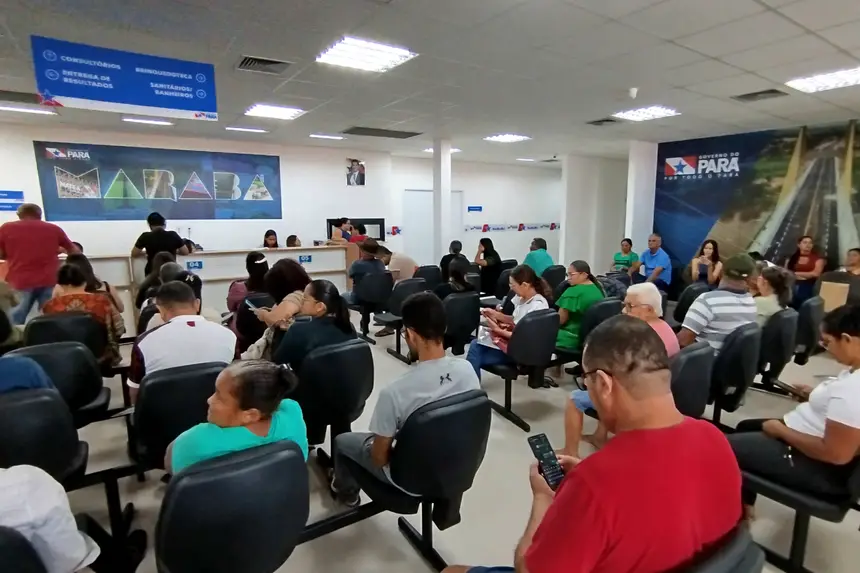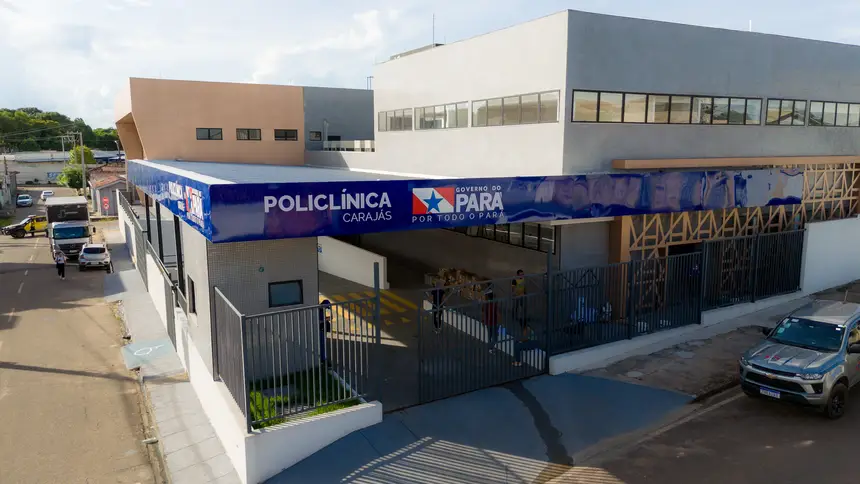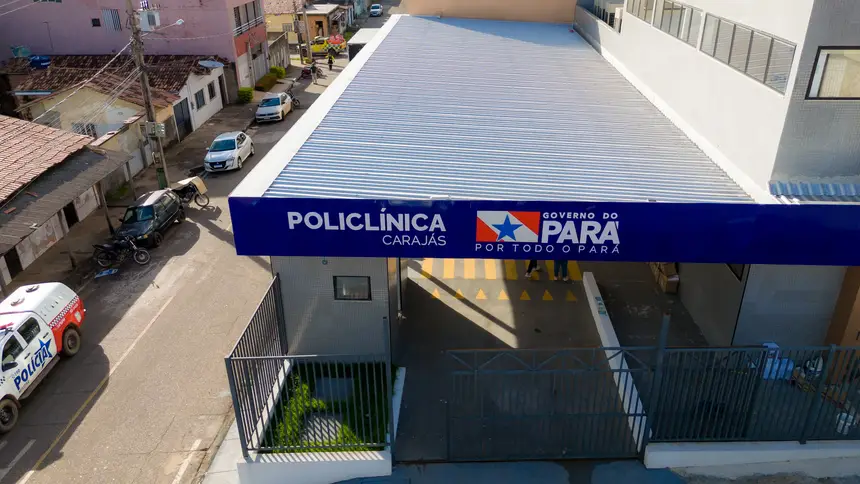Polyclinic Carajás surpasses 22 thousand appointments in three months, including consultations and exams
The unit confirms itself as a reference in health in southeastern Pará. Between April and June, 5,452 consultations were made in 26 specialties and 17 thousand exams.

The Polyclinic Carajás Miguel Chamon, in Marabá, in southeastern Pará, has surpassed the mark of 22 thousand appointments in the first three months of operation and has already established itself as a reference in health in southeastern Pará. Between April and June, the unit performed 5,452 consultations in 26 medical specialties and 17,484 laboratory and imaging exams.
The most demanded medical specialties were orthopedics (13.46%), cardiology (13.34%), ophthalmology (11.17%), and gynecology (10.05%). Among the exams, laboratory tests accounted for the largest share, with 72.4% of the total. Imaging exams such as ultrasound (7.78%), tomography (7.56%), and radiography (6.08%) also stood out.
The Secretary of State for Public Health, Ivete Gadelha Vaz, highlighted the importance of the Polyclinic. "This result reaffirms the government's commitment to expanding the population's access to quality health services. It is a step forward in strengthening the public network in southeastern Pará, ensuring comprehensive and humanized care for thousands of people," said the head of Sespa (Secretary of State for Public Health).

Delivered on April 5 of this year, the Polyclinic Carajás is part of the Government of Pará's strategy to regionalize health, offering technology combined with humanized care and specialized teams. The unit ensures accurate diagnoses and effective treatments, providing comfort and quality in care for users.
Approval
Patient satisfaction confirms the positive impact of the Polyclinic. A resident of Bom Jesus do Tocantins, in the Carajás region, Edilane Machado praised the organization of the service after taking her daughter, Emili Caroline, for a consultation at the institution.
"My daughter was referred for care with an otorhinolaryngologist and then we did exams at the Polyclinic. Everything was quick and organized. Being able to do everything in the same place made it much easier for us," said Edilane. Her daughter Emili added, "It's beautiful here, everyone was nice, and I wasn't afraid of the exams," she said with a smile.

Another patient who also approved the services of the unit was Franciele Silva, from Piçarra, in the Carajás region. She was referred for an ultrasound exam. "I was well received from the entrance to the main reception. The service was quick, and everyone treated me with respect and care; I felt welcomed," highlighted the user.
Medical specialties
Managed by the Institute of Social and Environmental Health of the Amazon (ISSAA), in partnership with the Secretary of State for Public Health (Sespa), the Polyclinic also offers medical specialties for adults and children in allergology, cardiology, endocrinology, gastroenterology, hematology, nephrology, and otorhinolaryngology.
The unit also provides care in anesthesiology, dermatology, hepatology, infectious diseases, mastology, pulmonology, psychiatry, rheumatology, urology, and clinical neurology, ensuring comprehensive and specialized care for the population.
For Joabe Lopes, the executive director of the unit, the numbers reflect the team's commitment to a resolutive and welcoming service. "We are fulfilling our role by bringing quality health closer to people, with dignity and care," he stated.

The Polyclinic also offers exams such as colonoscopy, endoscopy, electrocardiogram, echocardiogram, electroencephalogram, fibronasolaryngoscopy, bone densitometry, stress test, magnetic resonance imaging, Doppler ultrasound, among others.
The executive director emphasized that the results from the first months indicate continuous growth. "We are just getting started. Our commitment is to expand services and strengthen comprehensive care for the population efficiently," concluded Joabe.
State regulation for appointments
The appointments at the Polyclinic are regulated by the State Regulation Center, under the responsibility of the Secretary of State for Public Health (Sespa). To access the services, citizens must seek a Basic Health Unit in their municipality. After evaluation, the health professional will provide the necessary referral. Then, the patient must present the referral document and their personal data to the Municipal Health Secretary, who will register and schedule in the State Regulation System.
Text by Edersom Oliveira









